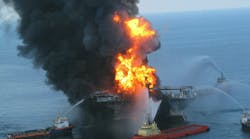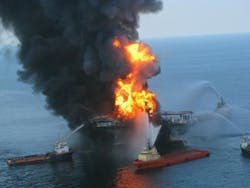According to a recent report from the U.S. Chemical Safety Board, the failure was due to bad management and operations. In studying the hulking nine-year old, 57-ft tall, 400-ton device, investigators found faulty wiring, a dead battery, and a bent pipe, hazards which all contributed to the preventer's failure.
The report also said the rig operators should shoulder some of the blame. According to a safety board investigator, the well owner and the rig operator just tested the device as a whole instead of testing the preventer's individual safety systems. Such tests likely would have revealed the faulting wiring and the dead battery.
The problems with the blowout preventer in the BP incident were worse than initially understood, said safety board managing director Daniel Horowitz in an interview. "There are still hazards out there that need to be improved if we are to prevent this from happening again."
Washington attorney Kevin Ewing, who represents many oil drilling interests, says well operators have since improved their techniques and cautioned against making broad indictments regarding the safety of currently operating blowout preventers.





